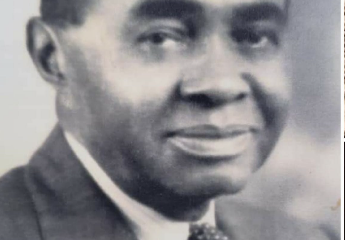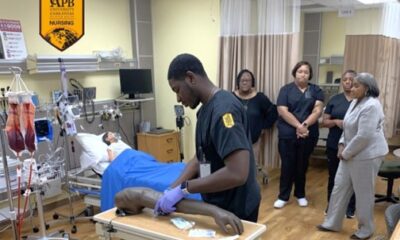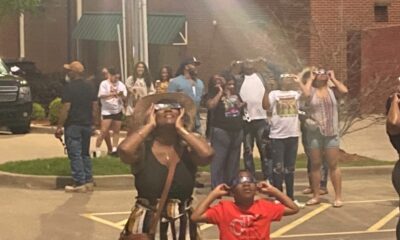Featured
Permanent Daylight Saving Time May Hurt African Americans Who Sleep Less Than Most Americans

The debate over daylight saving time has reached the decisionmakers in Washington, again. Days after the nation moved its clocks forward one hour on March 13 beginning daylight saving time and “longer days,” the Senate passed a bill making it permanent instead of switching back and forth to standard time.
It seems many Americans are in favor of the idea. A recent poll found that 63% of Americans preferred eliminating the need to change their clocks and wanted to stick with daylight saving while 16% did not.
Count Kelyse Little in the group supporting the “fall back” schedule or standard time.
“I know we get more daylight, but an extra hour can do wonders,” she said.
The 26-year-old elementary schoolteacher is admittedly a poor sleeper who finds it difficult to fall asleep because she has “so much on my mind.”
Sleep On It
Numerous studies show that Little and many other Black Americans suffer from a disproportionate lack of sleep. A 2015 article in The Atlanticexplored the sleep gap between whites and Blacks, pluming the long-range implications for health and wellness.
The Sleep Foundation conducted a “Sleep Inequality Series,” a collection of articles to understand the “contours and effects” of sleep inequality.
Dr. Dayna Johnson pointed to the intersection of race, gender and socioeconomic status on sleep.
She shared, “We actually see African Americans that are higher on the socioeconomic gradient, they actually have worse sleep than those on the lower socioeconomic gradient. We are not seeing education and income as protective for their sleep health.”
Johnson, who is an Epidemiology professor at Emory University, added, “The root causes of sleep and health disparities is racism.”
In a 2010 Sleep Foundation poll, Black respondents reported the least amount of sleep on weekdays, experience more short sleep and sleep apnea. According to the Sleep Foundation, long sleep – defined as greater than nine hours – is also more prevalent among African Americans. Both long and short sleep can be detrimental to overall health.
Clocking the 1973 Energy Crisis
If Congress does pass legislation making daylight saving time permanent, it won’t be the first time the country has experienced that effort.
In 1973 then-President Richard Nixon signed an emergency daylight saving time bill into law to combat an energy crisis – an attempt to cut demand by extending daylight hours. At that time, 80% of the country supported the decision but by October 1974, public opinion had dropped below 50% with parental concern about children attending school in winter darkness driving the reversal. Nixon had resigned due to Watergate and then-President Gerald Ford signed a bill returning the nation to four months of standard time.
With this new legislation known as the Sunshine Protection Act, the American Association of Sleep Medicine issued a statement applauding Senators for passing a bill to establish a fixed, year-round time. But the association stopped short of a full endorsement.
The statement emphasized, “The AASM cautions that making daylight saving time permanent overlooks potential health risks that can be avoided by establishing permanent standard time instead.”
With a spring in her step, Kelyse Little continued her morning walk with her dog, possibly anticipating one of the naps she said helps her offset sleep deprivation. She said she was “kinda mad” about the bill to make daylight saving permanent, and she may find there are millions of others who agree with her.

-

 Black History5 months ago
Black History5 months agoThe untold story of a Black woman who founded an Alabama hospital during Jim Crow
-

 Featured9 months ago
Featured9 months ago‘No Closure’ In Town Where Five Black Residents Were Either Murdered, Died Suspiciously Or Are Missing
-

 Black History10 months ago
Black History10 months agoBlack History Lost and Found: New Research Pieces Together the Life of Prominent Texas Surgeon and Activist
-

 Featured9 months ago
Featured9 months agoFounder of “The Folding Chair” Podcast Calls Montgomery’s Brawl ‘Karma’
-

 Featured9 months ago
Featured9 months agoThousands ‘Live Their Dream’ During National Black Business Month
-

 Featured11 months ago
Featured11 months agoJuneteenth And ‘246 Years Of Free Labor’ Are Key To Conversations About Reparations









